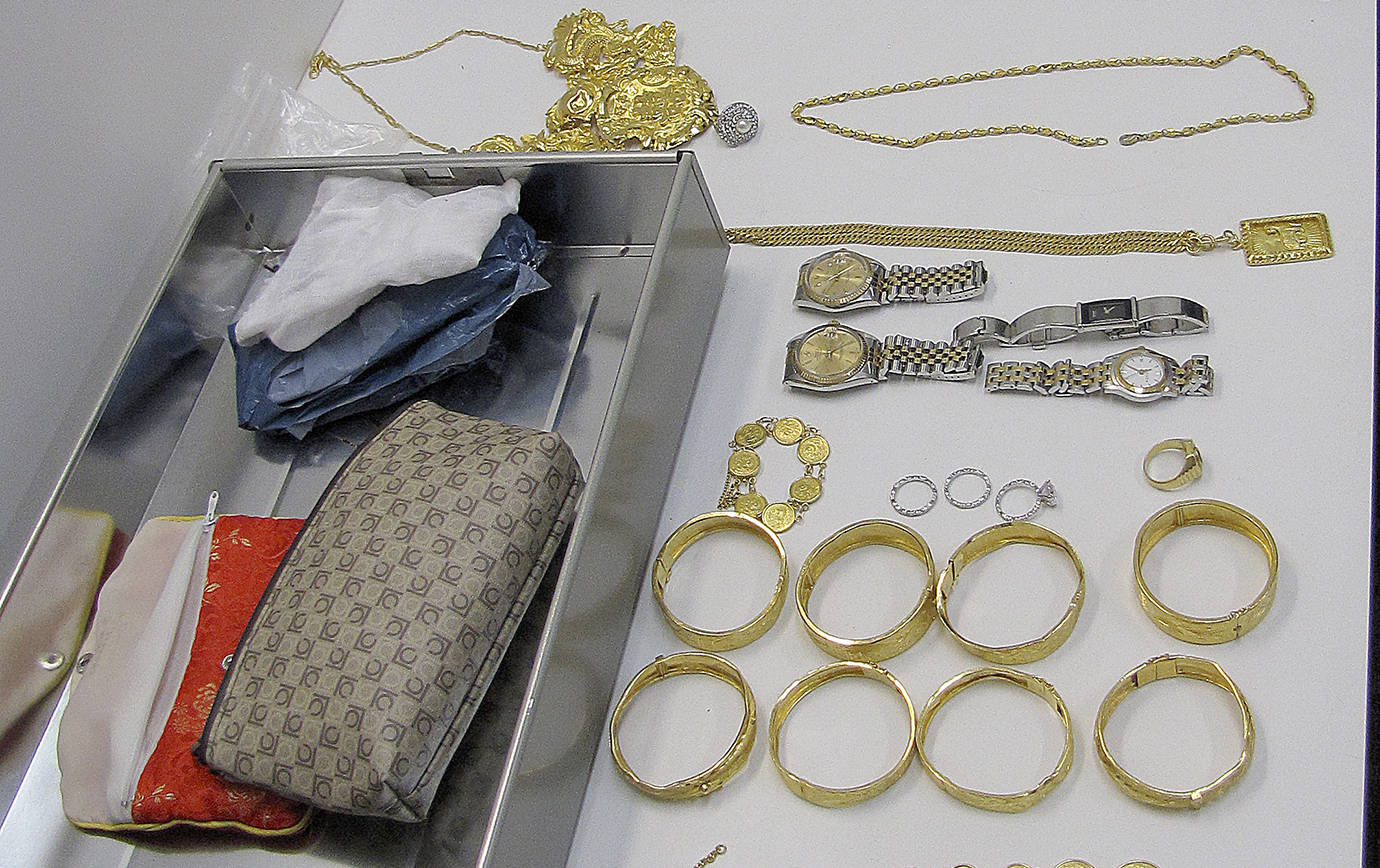The sale of property seized in the Green Jade illegal marijuana grow busts of late 2017 will fund future narcotics investigations in Grays Harbor County, according to Grays Harbor County Undersheriff Dave Pimentel.
Homes, vehicles, jewelry, guns and more than $400,000 in cash and gold were seized, along with more than 32,000 marijuana plants worth an estimated $80 million and marijuana grow related equipment in the multi-county, multi-agency operation, one of the largest of its kind in U.S. history.
Collecting, cataloging and storing seizures is time-consuming and intensive, as are the civil cases that follow, but the end result is beneficial to the task force and county, and not just financially, said Pimentel.
“You don’t do it for the money. You do it because you have a criminal enterprise here in Grays Harbor County,” he said. “The main focus is protecting the community. You would be doing it one way or another, but it is nice to be able to gain some financial assistance down the road.”
Seized items are held until the completion of the related court cases, at which time property owners can go through legal channels to attempt to get it back.
“Everything that is taken is subject to civil seizure laws, and the defendant has an opportunity to claim that property and have a hearing to contest it,” said Pimentel. Those hearings are presided over and decided by Superior Court judges.
That puts a big burden on the civil courts, in charge of the dozens of forfeiture cases related to Green Jade.
“In terms of my work I have had to spend the vast majority of my time on the Green Jade forfeitures beginning in October of 2017,” said Norma Tillotson, Civil Deputy Prosecuting Attorney. “Not a day goes by that I’m not working on Green Jade.”
Such is the volume of work, Tillotson said the Green Jade civil court caseload is a “large part” of the reason another deputy prosecutor in the civil division was recently hired. Tillotson has had a white board in her office to keep track of and update the cases.
Seized property is divided into two categories: “real property,” which includes houses and land, and “personal property,” everything from vehicles to jewelry.
“We initiated real property forfeiture in over 30 cases,” said Tillotson. “I’d say more than half of them have settled in one way or another.”
Real estate professionals are given the opportunity to put in a proposal to sell the houses and properties seized as part of the Green Jade operation, said Pimentel. There were three properties to market when the request for proposals went out in the spring of 2018, with “the potential of up to 40 properties throughout Grays Harbor County. These properties range in condition from distressed to uninhabitable,” read the request.
As for the vehicles, jewelry, tools and other non-real estate seizures, “Everything goes to auction,” said Pimentel. Most of the auctions go through an Oakville auction house, “but we have done others,” he said.
“With regard to the personal property forfeitures, we currently have about 10 still pending, so there probably were at least 20-30 that have been resolved,” said Tillotson.
Proceeds from the sale of personal property go directly toward funding narcotics investigations, said Pimentel.
“So when any of these properties, not just from Green Jade but from any asset seizure done by the Drug Task Force, the proceeds are divided between the three parent agencies: Aberdeen Police, Hoquiam Police and the Sheriff’s Office,” said Pimentel. “Federal statute says anything seized during narcotics operations has to be spent on future narcotics investigations.” That can be spent on personnel, equipment, anything that aids in narcotics investigations.
It doesn’t matter where in the county the property was seized. “They divide every dollar obtained through the sale of assets evenly,” said Pimentel; each agency receives one third of the revenue. How the money is spent is determined by the three agencies that make up the county’s drug task force.
More than a year in, there is still much work to be done. There are still numerous Green Jade related cases that have yet to be adjudicated, said Pimentel, which leaves a fair amount of property still locked up in evidence storage.
“We still have a lot of seized property but we were able to use a large, undisclosed warehouse to store it,” said Pimentel.
How much?
“We have well over 5,000 items in evidence,” said Hoquiam Police Sgt. Joe Strong, who oversaw the Green Jade operation. He was also last year’s Daily World Police Officer of the Year award recipient.
That doesn’t mean there’s 5,000 individual pieces of evidence either.
“Some items are bags containing several items,” said Strong. He gave the example of seized jewelry. There may be one bag containing perhaps 40 different pieces of jewelry, which also must be individually cataloged. A list of each individual item could top 20,000 individual pieces.
How much longer will Green Jade linger in the civil courts? Pimentel guessed it could be another 18 months, while Tillotson thinks “probably another year.”


